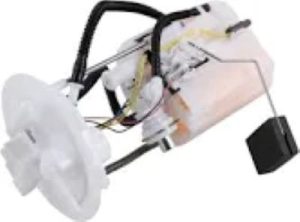The air-fuel mixture needed for great combustion will be disrupted, leading to low fuel pressure damage for the motors that lasts over time. Engines need a given amount of fuel pressure, typically 40-60 PSI in a typical vehicle, in order to keep the right ratio of fuel to air. The fuel pump is unable to move a sufficient volume of fuel when the fuel pressure is below this range, and hence resulting in a peak level of air and not enough fuel to create the combustion. Because a low-ratio of gas to air increases the temperature of the engine, it can cause pre-ignition and pistons and other internal components can suffer which reduces engine life up to 20%.
Release of low fuel pressure makes the engine work extra hard, lowering efficiency and eventually causing problems, like stalling, misfires, and rough idle. High-performance engines in particular − many needing pressures in excess of 100 PSI − can be damaged by low pressure; the smaller internal tolerances created noticeable performances losses quite early, and subject the engine to needless internal stress from the onset of misadjustment. Fusion will operate on a lean mixture for extended durations, and some studies indicate power output can fall off 10–15% and wear on the cylinder walls and piston rings will actually increase.

Fuel injectors, on the other hand, depend on consistent fuel pressure to properly atomize the fuel, so low fuel pressure also comes to haunt them. As the pressure falls away, the fuel does not atomise properly, meaning poor combustion and injector coking. This accumulation is what clogs the injectors so they meagerly flow when the remaining mix takes them on a fresher cycle into the combustion chamber, contributing to an inefficient burn that wastes fuel and decreases performance. Inspections of the fuel pump and pressure regulator keep low-pressure instances from happening that could cause permanent engine damage.
A properly-maintained Fuel Pump, filters & regulators will help eliminate low fuel pressure problems that prevent the engine from getting the balanced & consistent fuel supply it needs. Such a preventive approach not only ensures the health of the engine but also minimizes expensive repairs while assisting in the smooth and effective combustion and delivery of fuels, thus prolonging the life of the vehicle.